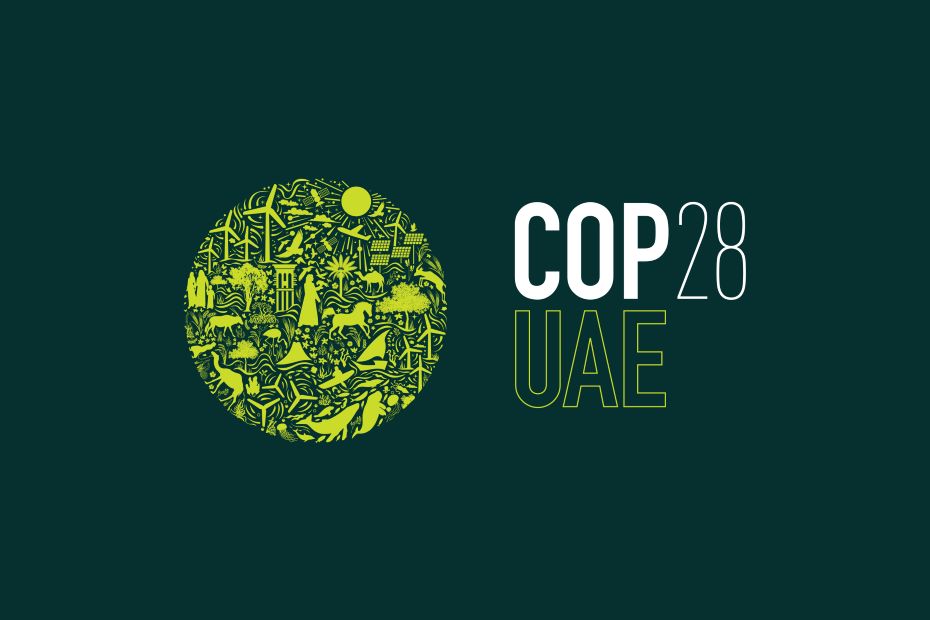The Path to COP28, the first and largest finance-focused campaign for COP28, brought together high-profile institutions and thought leaders to raise awareness and drive action from the global finance sector.
Delivered by the Global Ethical Finance Initiative (GEFI) – a non-profit organisation focused on driving finance for positive change – the campaign was the largest finance-focused campaign for COP28, backed by over 60 global financial institutions and thought leaders in green and sustainable finance.
As part of their SDG Hive Programme, GEFI hosted a series of events across 2 days at COP 28 across in partnership with the DIFC Academy. The series provided a platform for high-impact discussions around select COP 28 themes.
NOW Money attended the events where key discussion areas included;
Transition Finance and Driving a Sustainable Economy
We were told that 2023 has been a defining year for the ‘Just Transition’. A concept which has been adopted by many with reference to meeting climate goals by ensuring the whole of society is brought along in the transition to a net-zero future.
The focus on sustainable financial products, developments in standards, frameworks and partnerships has been rising at unprecedented levels. However, the International Energy Agency’s Net Zero Emissions Scenario finds the need for an additional $126 trillion to fully fund the necessary transition.
Speakers also concluded that the Just Transition can only be achieved if social and economic issues are addressed alongside environmental concerns. Financial inclusion not only fosters climate resilience, it creates opportunities for market development and economic growth.
Financial Inclusion and the Vulnerable
Much of day 2 focused on Africa, and the importance of financial inclusion in achieving the SDGs. Naveen Raza, Net Zero Transition and Partnerships at HSBC, emphasised the disproportionate impact of climate change on society’s most vulnerable. These individuals, often living hand-to-mouth, supporting extended families, face escalating challenges due to rising temperatures and the surge in natural and pandemic-related disasters are often hardest hit and in danger of being left behind. Integrating financial inclusivity into the climate change narrative is crucial.
For financial services, three key areas for financial inclusion strategies were highlighted:
- Bridging the gap for the underbanked.
- Crafting financial products that cater to inclusivity.
- Educating through financial literacy programs.
Leadership and Culture for Change
An overarching theme for the Hive and COP 28 was around leadership and creating the culture for change. We heard from leaders and educators who inspire and innovate in tackling climate change and planning for the Just Transition.
Christian Kunz, Head of strategy and Innovation at DIFC, highlighted the need of not leaving anyone behind and the need for communications and cooperations between all parties involved.
Modupe Ladipo, Founder & CEO at Prosperar Development Consulting, underscored the indispensable link between a just transition and an all-encompassing financial system.
According to her, a financially empowered individual possesses the essential means to navigate daily expenses, rebound from unexpected financial setbacks, and harbour a sense of security regarding their financial prospects. She urged all involved in crafting processes and designing products to consider the diverse spectrum of needs and circumstances.
Emphasising the requirement for tailored solutions, highlighting the uniqueness of each individual. Ladipo’s call was for greater creativity in the development of products and solutions, encouraging innovation that caters to the varied requirements of different demographics.
The financial implications and requirements to deliver the underlying targets and SDGs for COP 28 are daunting, complex and diverse. Technology and data are transformational and powerful tools for change but it is essential to be aware of the human narratives and the imperative of prioritising people.
As the curtain falls on COP 28, the leaders of the countries, economies and organisations will return home for the holidays to reflect on what they said, heard, learned and agreed. One key takeaway and possibly universal truth is that money makes the world go round. The challenge remains to make it go round sustainably with a future included for everyone.
NOW Money driving financial inclusion
The first step in financial inclusion is access to a transactional bank account.
Since 2016, NOW Money has worked with hundreds of responsible employers to provide access to digital banking services, promoting the financial inclusion of underserved communities, fostering economic empowerment and reducing poverty.
In addition, NOW Money works with employers to offer financial education to improve employees’ financial literacy, reduce vulnerability to fraud and drive confidence and trust in the use of digital tools.
Our award-winning mobile bank account offers low-cost money transfer options and debit cards without minimum salary or minimum account balance requirements. The app is fully inclusive and available in 11 different languages, designed for people with lower literacy skills.

A Better Way to Pay
Find out how NOW Money can add value to your business with flexible payroll and inclusive employee banking solutions.
Arrange a quick call with our team to see how NOW Money can work for you.







